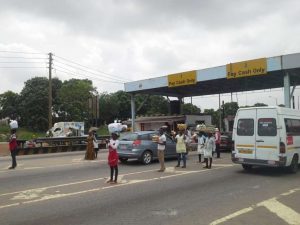In January 2016, B&FT published an article titled ‘The Airline bust: who’s next?’ that showed the stark reality of the aviation industry in general and specifically Ghana, and the precarious position of some airlines (domestic) operating in the country.
Bold predictions were made based on the harsh operating environment that prevailed at the time—which included but was not limited to challenges with the local currency, high cost of aviation fuel, and the ill-advised imposition of VAT on domestic airfares.
It’s almost three years since that article, and the aviation landscape has changed like desert dunes. New dunes have been formed, new patterns developed, but the capital intensive nature of the aviation industry with very little margins (between 3-5 percent per annum) hasn’t changed. Starbow is no more and Passion Air and Unity Air have entered the fray. Air Namibia restarted operations in Ghana and suspended same; Brussels and Air France have also increased their flight frequency; and the ‘nuisance’ VAT on domestic air tickets has been scrapped. New partnerships between Africa World Airlines and major international carriers have also been formed.
Existing legacy and decades-old carriers that have been servicing the Kotoka International Airport have mastered the art of operating profitably, and new entrants are striving to keep afloat and make some decent return on their investment in the not-too-distant future. What of the proposed new home-based carrier? Will it start, survive, grow and become profitable?
The desire to establish a new flag-carrier is born out of the desire to leverage the facilitating role of aviation for one of the fastest-growing economies in the world; Ghana’s economy is expected to grow at 7.1 percent for the year ending December 31, 2019. Aviation is an enabler and the aviation economy employs millions of people and generates billions in revenue. For a nation seeking to create jobs for hundreds of unemployed tertiary-educated graduates, building a strong aviation sector is imperative. National pride and recapturing the old routes plied by Ghana Airways are also some of the key motivations.
Will the new home-based carrier succeed?
The key ingredients for success in this new enterprise are: a solid feasibility study, a comprehensive business plan, fleet choice, funding and management, among others.
Feasibility studies conducted by the Aviation Ministry, which is spearheading this project, show a huge potential for this new enterprise. Snippets gleaned reveal that the demise of Ghana Airways left a huge gap that has now been filled by other renowned airlines operating out of countries Ghana has standing Bilateral Air Service Agreements (BASA) with. The feasibility study also points to the West Africa sub-regional market as being grossly underserved. This informed the business plan for the proposed home-based new carrier.
Ownership & Management
The other pressing issue is the ownership and management structure. First, a company must be legally set-up with the shareholding structure clearly stated. As it stands now, that is yet to be finalised. Government has stated its desire to only hold a 10 percent stake in the new entity and allow private investors to partake in this new project. Again, a strategic investor in Ethiopian Airlines was mooted – but the final decision is yet to be taken.
Cabinet, according to information available to B&FT, is considering three options: partner a local airline such as AWA to establish the new home-based carrier; seek a strategic investor with the financial muscle, expertise and world-wide reach such as Ethiopian; or state-funded and owned but management contract given to an internationally renowned airline or group that reports to a board. These options are all designed to insulate the entity from divisive politics, favouritism, nepotism and all the other ‘isms’ that led to the collapse of Ghana Airways.
Ghana has signed two separate Letters of Intent to purchase of six (6) Dash8-400 turboprop planes from Canadian Manufacturer De Havilland Aircraft, and three (3) Boeing 787-9 planes from the American Multinational Company, Boeing.
Financial arrangements for the Dash8 and Dream-liners are expected to be completed in the coming weeks. The base price per each Dash 8 is about US$35million.
However, the final price determination per each Dash8 aircraft that can seat up to 82 passengers is to be informed by the base price, configuration, branding and any other such modifications a customer may deem necessary.
The B787-9 on the other hand costs about US$200million. This may go up, based on the configuration and other requests Ghana may submit.
However, funding sources for the planes are yet to chosen out of about two available options. These options include an outright purchase by gov’t to start the new carrier; and leasing arrangements with a third party (bank) paying for the aircraft.
The choice of the Dash8-400 turboprop is ideal for starting domestic and regional operations, given the terrain and traffic. The aircraft is durable and fuel-efficient. It can be balanced to increase its range, whereby it can fly directly from Accra to Dakar.
Analysts have however said it would be prudent to go ahead with the Dreamliner deals but put off the delivery date till months after starting the domestic and regional operations. This, they say, will ensure the new home-based carrier builds its domestic and regional bases before attempting long-haul operations. These choices will define the success or otherwise of this new venture.
credit: thebftonline.com







